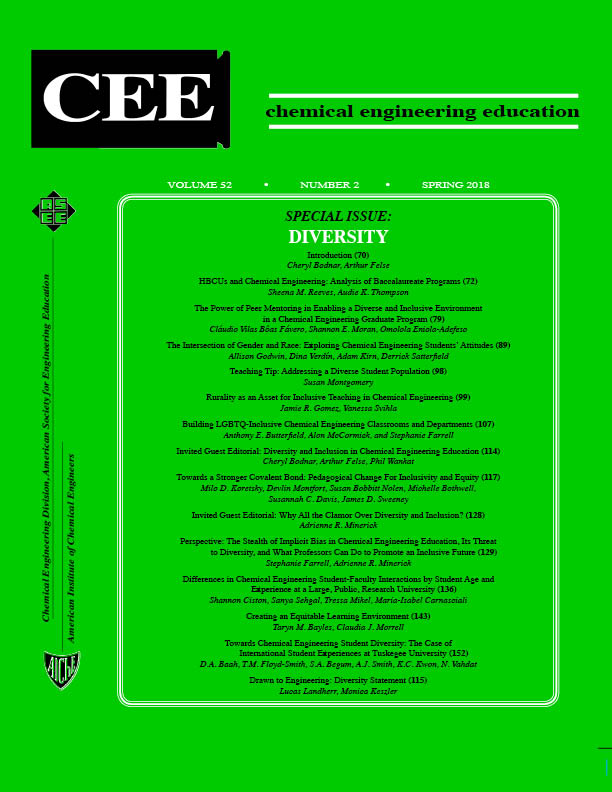Rurality as an Asset for Inclusive Teaching in Chemical Engineering
关键词:
Design learning, Rurality, Project-based learning, Culturally-responsive teaching (CRT)摘要
We developed and tested a pedagogical strategy—asset-based design challenges—to enhance diversity in early chemical engineering coursework. Using qualitative methods, we found first-year students justified high-cost solutions with ethical arguments; teams that included rural expertise argued instead for economically-viable solutions. In the sophomore class, students used cost and environmental impact to make decisions about rural concerns. These findings demonstrate that students learned from their rural peers and leveraged this information as they made design decisions.


